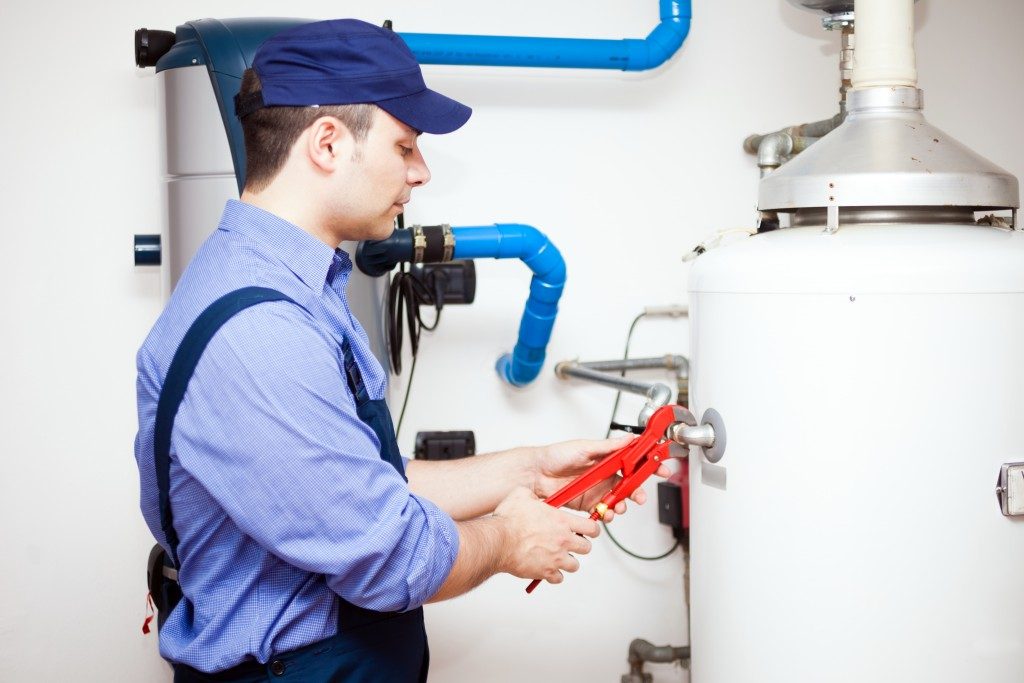Water heaters typically last more than ten years, especially with proper maintenance. But at least once in its entire life, it would encounter a problem or two. Some signs of damage can be difficult to notice, and when it gets worse, your water heater’s service life will be shortened to a great amount. Although water heater replacement service is not hard to obtain, we could save ourselves a lot of trouble by knowing the signs early on. If you notice the following happening to your water heater, have a professional inspect it immediately:
1. Rusty Water
When the hot water coming out from your faucets and showers looks rusty or muddy, then it indicates that the water heater is about to fail. Rusts have formed inside the tank, but if you use galvanized piping, it’s the pipes that are most likely developing rusts. You can further examine the water by turning the device off first, then attaching a hose to its draining bib. Drain the water and inspect if they’re still rusty. If it is, then there’s a build-up of sediment in the water tank which would damage your water heater eventually. Another way to examine the waters is by smelling or gingerly tasting the hot water; if it has a metallic smell and taste to it, then your water heater is likely about to break down.
2. Noises
Apart from rusts, sediments build up in the water tank can also cause noises in your water heater. As your water heater ages, the sediment in the tank could harden, making rumbling and banging noises while the water is heating up. The wear and tear of the metal tanks from age would be worsened by hardened sediments. Cracks and holes could develop, which would cause leaks in turn.
3. Leaks

A number of problems can cause leaks in your water heater. Water temperature is one; metals expand with heat, and if there are small fractures in the tank, leakage may occur. But this would stop once the metal is cooled down.
Water buildup can also cause leaks, and in this scenario, the temperature-pressure relief valve should mend it. It is designed to release excess water from the pressure buildup in the water heater. When the water temperature is set too high, however, the water pressure would also increase beyond the control of the pressure relief valves. Extreme pressure can potentially explode the tanks, ending up in water leakage.
In an electric water heater, the heating element gasket could be the problem that’s causing the leaks. Before replacing the gasket, switch off the heater’s power and drain all the water out of the tank. Before turning the power back on, run the hot water first on a sink to prevent further damage.
When the water leaking from the water heater is dirty, then it’s the rusty pipes causing this problem. Exposure to rusty waters can be harmful to health because of the bacteria and other chemicals it absorbs. Repair or replace your water heater right away when rusty leaks occur.
Leaks need to be addressed immediately because it damages not just your water heater but the other things surrounding it as well, like the floors and walls. The foundation of your home could also be affected by severe leakage. Molds and mildew may develop, damaging and weakening all of the things mentioned.
Scheduling professional servicing yearly can help avoid these problems. Although we can conduct inspections ourselves, chances are we’re too busy to make time for it. If you haven’t checked or used your water heater in a while, especially if it’s a relatively old unit, contact a professional as soon as possible to know if it needs repair or replacement.

